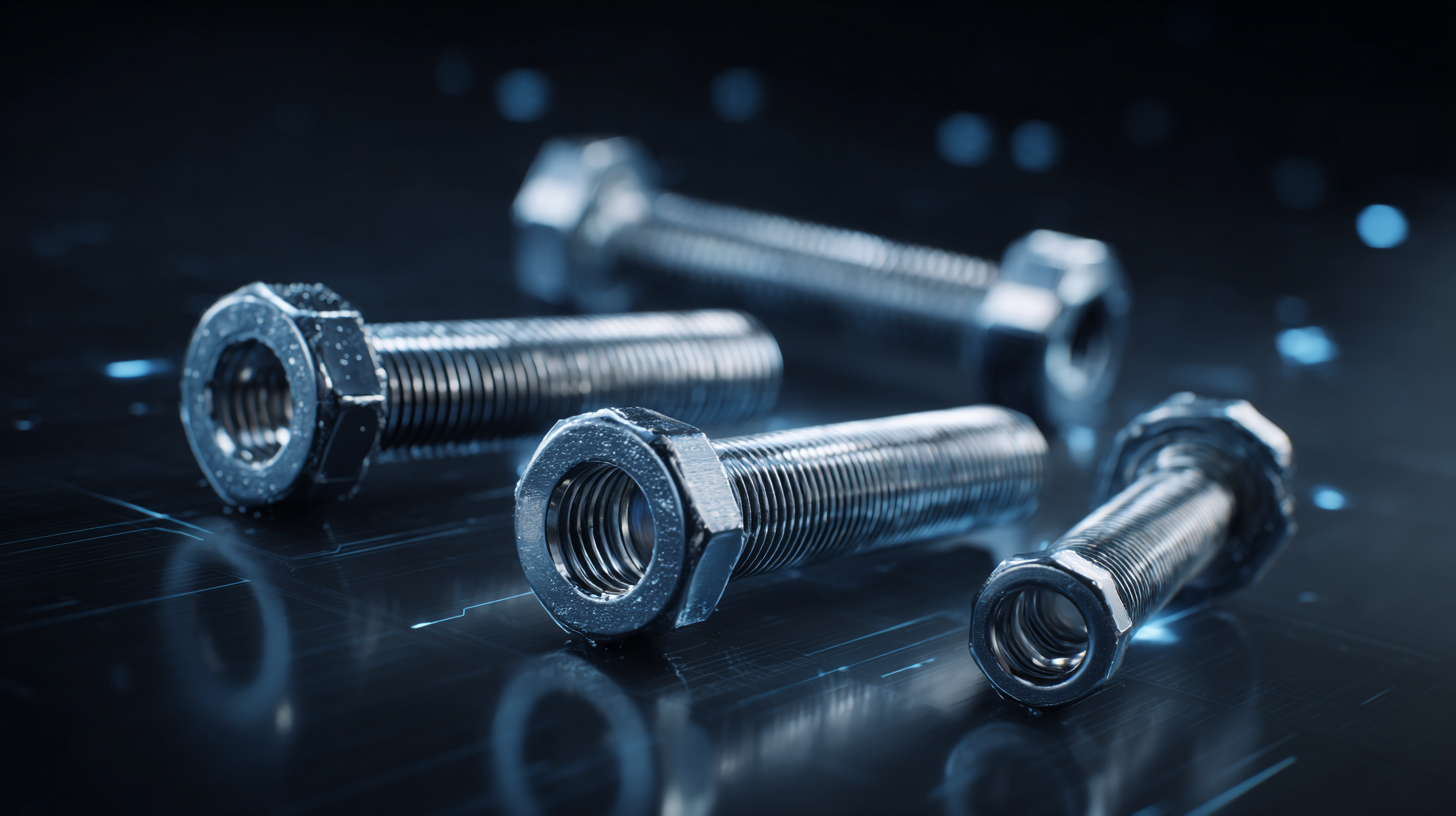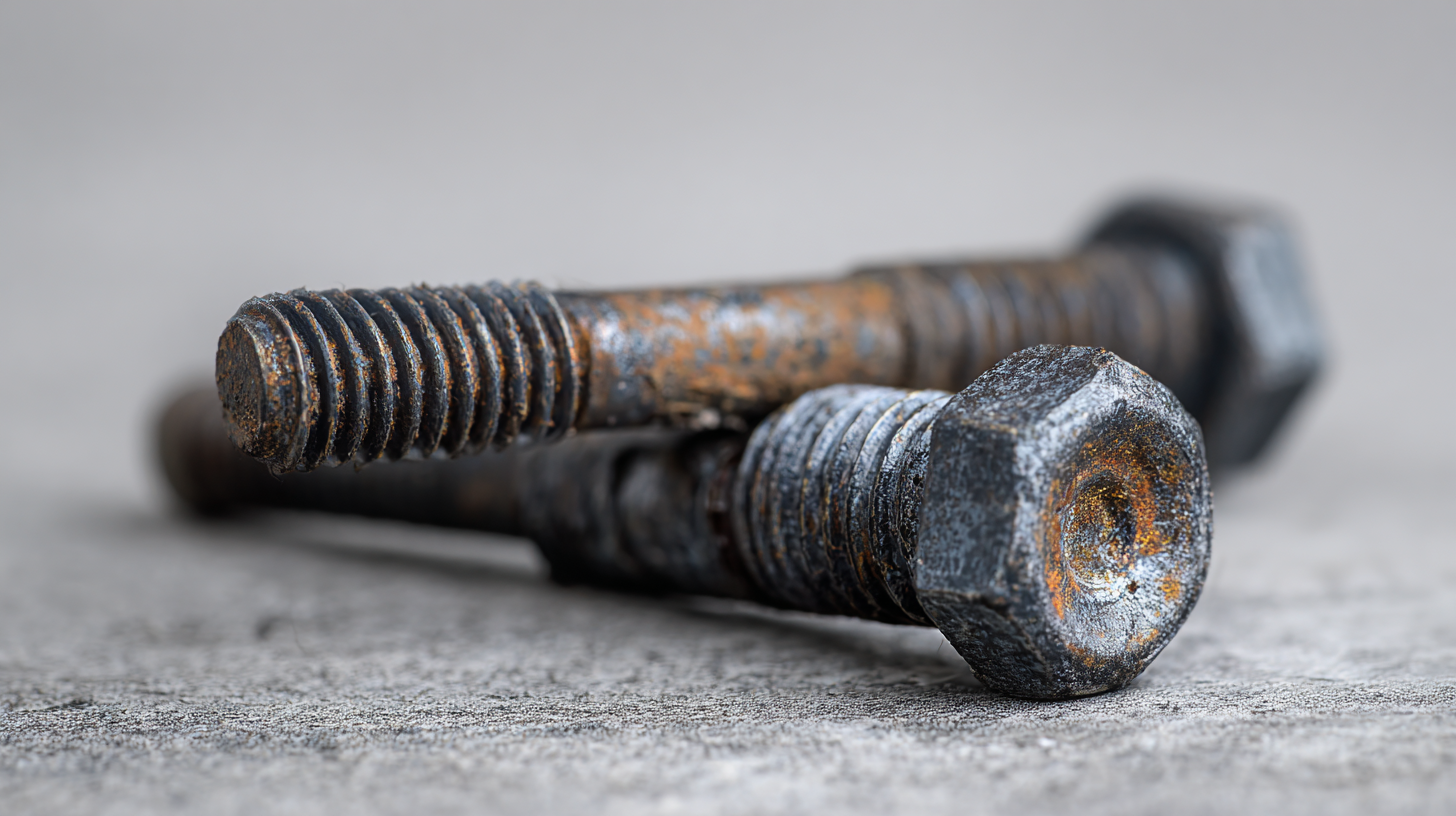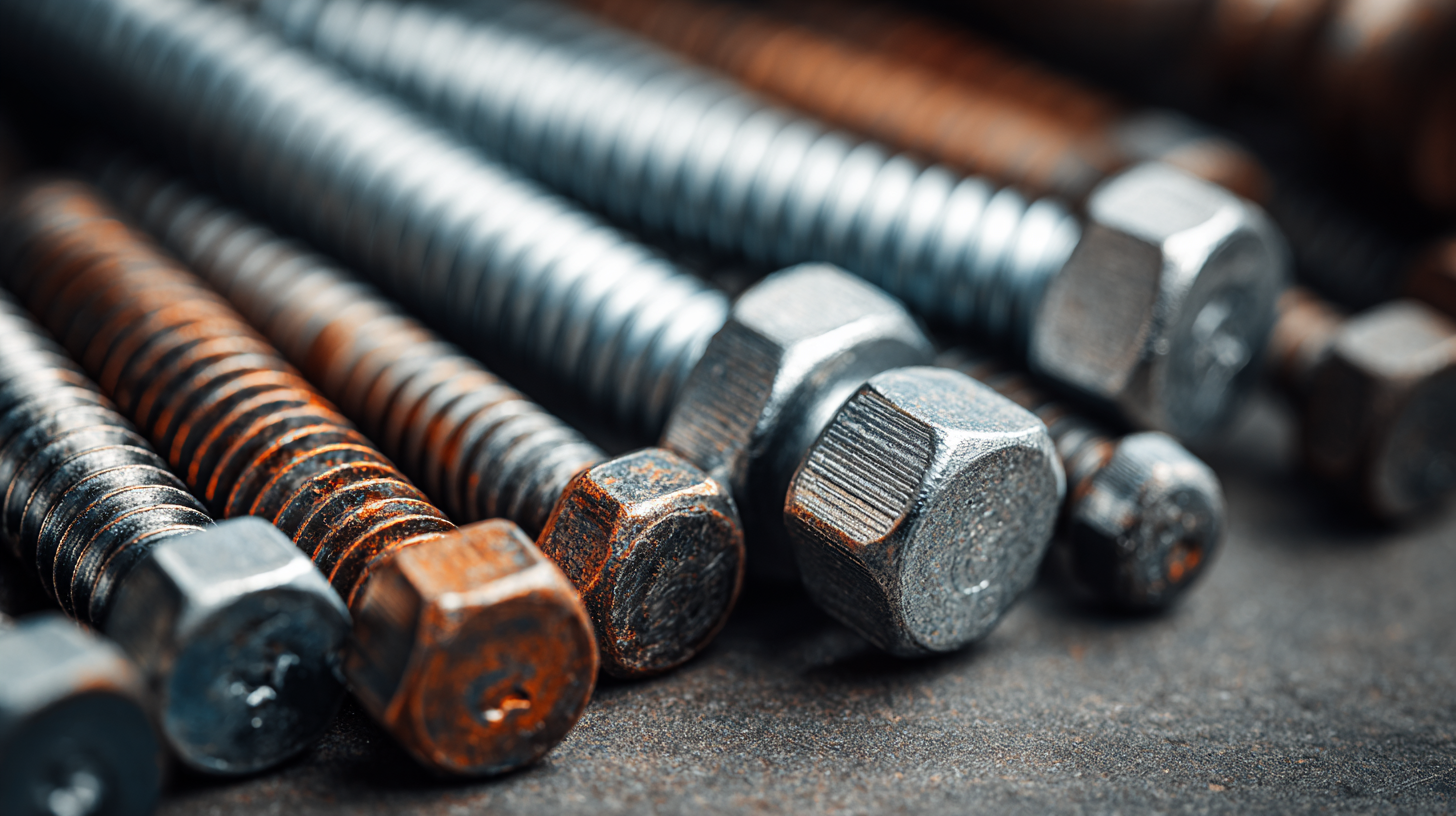As we approach 2025, the manufacturing landscape is undergoing a remarkable transformation, especially in the realm of Hanger Bolts. These essential components, integral to various construction and automotive applications, are witnessing innovations that promise to enhance their performance and reliability. According to a report by Grand View Research, the global fasteners market is expected to reach USD 112.4 billion by 2025, with a notable increase in demand for high-quality and precision-engineered products like Hanger Bolts. The catchphrase "中国制造,全球共享,品质值得信赖" reflects the commitment of Chinese manufacturers to produce reliable Hanger Bolts that meet international standards. This blog will explore the future of Hanger Bolts, highlighting advancements in technology, sustainability, and their broader impact on the global supply chain.

The future of hanger bolt technology in 2025 is shaping up to be both innovative and transformative. As manufacturers strive for increased efficiency and sustainability, new materials and designs are emerging. Lightweight composites and advanced metals are expected to dominate, paving the way for stronger, more durable products while reducing overall material usage. Furthermore, emphasis on modular designs is likely to enhance assembly processes, making installations faster and more reliable.
Tips: When choosing hanger bolts for your projects, consider opting for those made with eco-friendly materials. This not only aids in sustainability efforts but also often results in superior performance in challenging environments. Additionally, keep an eye out for products with adjustable features, as these can save time during installation and allow for greater flexibility in design applications.
As automation and smart technology integrate into manufacturing, expect hanger bolts embedded with sensors to monitor tension and wear in real-time. This advancement will bring preventative maintenance to a new level, minimizing unexpected failures and maximizing operational efficiency. Adapting to these emerging trends can provide a competitive edge in construction and manufacturing sectors.
The manufacturing landscape for hanger bolts is evolving rapidly, with China playing a pivotal role in shaping global standards. As a leading manufacturer, China has invested heavily in technology and infrastructure, driving innovations that enhance the production processes of hanger bolts. This investment not only improves quality and consistency but also ensures that Chinese manufacturers can meet the increasing demands of international markets. The focus on advanced materials and precise engineering techniques positions these manufacturers at the forefront of the industry.

In addition to production capabilities, Chinese companies are becoming influential in establishing safety and performance standards for hanger bolts worldwide. By collaborating with international organizations and adopting stringent quality control measures, they are setting benchmarks that other countries may follow. As the demand for improved bolt performance in construction and industrial applications grows, China's impact on these standards will likely solidify its position as a leader in the hanger bolt market by 2025, ultimately benefiting industries that rely on high-quality fastening solutions.
In the fast-evolving world of manufacturing, the production of hanger bolts is witnessing significant quality improvement strategies that shape the future of the industry. According to a recent report from the International Fastener Institute, the global demand for fasteners, including hanger bolts, is projected to reach $120 billion by 2025, emphasizing the need for enhanced production processes. One innovative approach is the adoption of advanced materials, such as high-strength alloys, which improve durability and resistance to environmental factors. This shift not only enhances the product's lifecycle but also contributes to sustainable manufacturing practices.

Furthermore, the implementation of smart manufacturing technologies, including IoT and AI-driven analytics, is transforming quality control in hanger bolt production. A 2023 study by the Manufacturing Institute revealed that companies leveraging these technologies have seen a 30% reduction in defects and a 25% increase in production efficiency. By integrating real-time monitoring systems, manufacturers can swiftly identify potential issues and optimize their processes, ensuring that every hanger bolt meets stringent quality standards. As these strategies take hold, the landscape of hanger bolt manufacturing is poised for robust growth and innovation in the next few years.
As we look towards 2025, the integration of automation and artificial intelligence (AI) is set to revolutionize the manufacturing of hanger bolts. The global market for automated industrial processes is projected to reach $300 billion by 2025, according to a report by MarketsandMarkets. This surge will drive manufacturers to adopt smart technologies in production lines, thereby enhancing efficiency and precision in the fabrication of hanger bolts. Automation not only reduces labor costs but also minimizes the risk of human error, contributing to a more consistent product quality.
AI's role in this innovation landscape cannot be underestimated. Advanced algorithms enable predictive maintenance, ensuring that machinery operates at optimal capacity. According to a study by Deloitte, companies implementing AI in their manufacturing processes could see productivity gains of up to 40%. Furthermore, AI can facilitate the design process of hanger bolts through generative design software, allowing engineers to explore more innovative shapes and materials that enhance performance. The combination of automation and AI is transforming the hanger bolt industry, paving the way for smarter manufacturing and more resilient supply chains.
The manufacturing of hanger bolts is undergoing a transformative shift as sustainability becomes a central tenet in the industry. Recent trends indicate a significant pivot towards eco-friendly practices, fueled by consumer demand for greener products. According to industry reports, nearly 70% of consumers are now willing to pay a premium for sustainable products, pushing manufacturers to adopt practices that minimize environmental impact. This not only involves reducing waste and utilizing renewable resources but also rethinking the entire lifecycle of hanger bolts from production to disposal.
Furthermore, innovative manufacturing processes are being developed that adhere to sustainable principles, effectively balancing economic, social, and environmental factors. Techniques such as eco-design focus on reducing material consumption and energy usage during production. Research indicates that organizations implementing sustainable manufacturing processes can reduce their energy consumption by up to 30%. As brands increasingly recognize that sustainability can drive profitability, the examples of successful transitions are becoming more prominent in the literature, highlighting a future where sustainability isn't just an option but an integral component of business strategy in the hanger bolt industry.
